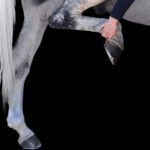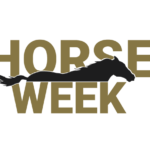Feb. 6, 2002 — The North American Fall Indoor Circuit was once among the world’s mightiest series of international horse shows. Riders considered it an honor to make the team for the three Nations’ Cups, in Washington D.C., New York and Toronto, and the European countries invited to compete all sent their best show jumpers.
But the glory started fading about 15 years or so ago, and now the circuit is facing a new era.
Three years after the National stopped holding Nations’ Cups, the Washington International and Royal Toronto show are following suit. Gina de Pasquale, a spokeswoman for Washington, said the Cups have only been “deferred,” and she is hopeful they can return.
“We’re by no means saying, `Bye-bye, Nations’ Cup. We’re the Washington INTERNATIONAL Horse Show and the Nations’ Cup is at the heart of our show,” she pointed out.
But Peter Doubleday, manager of the show at Toronto’s Royal Winter Fair, thinks he may have seen the last of the Cups at that venue.
“If I was going to look down the road, it would be hard to revive it,” he said frankly. “But maybe we’ll need the Nations’ Cup. Maybe we’ll have to try our rear ends off again to make it happen.”
The odds are against it. Gene Mische, chairman of the National (which follows Washington and runs before Toronto), said he thinks the Cup is an outdoor event that doesn’t work indoors. He’s hosting one next month among the palm trees on the broad swath of turf at the Cosequin Winter Equestrian Festival, which he also runs. There will be enough Irish riders already in Florida to form a squad for that nation at the Wellington site, but the rest of the competition likely will come from the Western Hemisphere.
As Gina pointed out, it’s a lot cheaper when participants can bring their horses to the Cup by van, rather than airplane. She estimated it cost between $60,000 and $100,000 to bring the teams over, and without New York helping out, the burden escalated for Washington and Toronto. Peter noted that by the time everyone arrived at Toronto, “we got a lot of tired and unsound horses.”
The question now becomes whether a few European riders should be imported for the jumper classes at the fall shows. Peter raised another question there. If the foreign riders get appearance money, transport and have their rooms paid for, “you have to make sure all is equal” and provide the same for the top U.S. riders, he said.
Whatever happens, the international fall circuit shows need to find a different way to go.
“They’ll never be the same as we knew them in the past; the emphasis isn’t there any more,” said Peter. “But they’re going to be a very important year-end factor, in part just because of their names.”
While Toronto has a steady fan base in its coupling with a huge agricultural show, and Washington is reviving, the National has had weak audiences in recent years. There are always rumors that it will have to leave Madison Square Garden, and this time, it seems there is a real basis to talk of its departure.
“The National will BE,” said Gene, when asked about the show’s 2002 edition. “It just may not be in Madison Square Garden.”
He had wanted a multi-year contract with the world’s most famous arena, but that wasn’t forthcoming, and Gene said a year-to-year deal would be a waste of advertising money in the struggle to build an audience.
Gene has appealed the Garden’s stance to Charles Dolan, whose daughter, Debbie, and son-in-law, Brian Sweeney, are both show jumpers. Charles Dolan heads Cablevision, which owns the Garden.
“If possible, I would like to stay there,” Gene said of New York.
But if that doesn’t work out, he noted the show has had offers of other arenas, including one west of the Mississippi. Should the show move there, it would be the first time in its 119-year history that it was held outside the New York metropolitan area.
And in the back of my mind, I always remember conversations years ago with Gene, when he talked about having the National someday at the complex in Wellington where the CWEF is held. Peter and I mused about the possibility of eventually starting the Florida circuit in the late fall, since horse owners are arriving there earlier and earlier every year.
PEOPLE PATTER–Peter (he’s also the famous horse show announcer, for those of you who don’t know) and I talked about his luck in winning $11 million in the Florida lottery last month.
“We’re still flying high,” he said about himself and his wife, Nancy. But they’re not buying any mansions in Beverly Hills.
“We’re not real extravagant people,” he explained, noting he is proud of what he and Nancy have achieved prior to the big win.
“We worked our tails off to get to this point,” he said.
The Doubledays plan to continue working, though they may “phase out a couple of things.” They also want to “give back a little to the sport that’s been so good to us.”
Now on to someone else who’s had a breakthrough. Michael Voudouris, who you’ve seen taking photos at the horse shows for years, made the Greek Olympic team for the Winter Games that begin this week.
His sport is skeleton, and the simple explanation is: it’s sledding, but at high speeds, and incredibly dangerous.
Michael, who holds dual Greek and American citizenship, trained hard to make the Games–and he did it by just 1/100th of a second. He got involved with skeleton when he took photos of U.S. skeleton athletes a few years back, and one of them insisted he try the sport before he talked to them. He was hooked.
Michael, who works as an emergency medical technician, was involved in work at the World Trade Center after Sept. 11. He lost training time and got sick from the fumes and dust, but he knows others fared far worse at that location. The new Olympian will memorialize the medical services workers who died in the tragedy by putting their names on his sled. It will also bear an image of the twin towers, and the star of life. He’s more interested in that message than a medal.
The Fair Hill International event and driving competition in Maryland has a new executive director. Lou Morris, a career Navy man, replaces Packy McGaughan, who in turn had succeeded William Venditta in the post.
An FEI 100-mile endurance competition will be held the weekend before Fair Hill in October this year at the event’s scenic site north of Baltimore. The hope is that in the future, it can be run on the same weekend as the driving and eventing.
MORE, MORE, MORE–A second memorial service was held yesterday for former U.S. Equestrian Team show jumping coach Bertalan de Nemethy.
The first, last month, was in Sarasota, Florida, his hometown since 1991. One of the best stories told there was by a fellow native of Hungary, who recalled how Bert led a group of Hungarian cavalry cadets in a quest for safe harbor during World War II. But the Germans got them, and Bert was marched off to meet with the German officer.
Bert’s detachment expected the worst; they thought their leader might be tortured, and they waited in fear for screams to emanate from the interrogation room. Instead, they heard laughter. Turned out Bert and the officer had competed against each other in the show ring before the war and they were busy reminiscing.
The second service, organized by Gene Mische, was held at the CWEF showgrounds with about 100 people in attendance. Speakers included former USET teammates George Morris, who mentioned Bert’s late, devoted wife, Emily, and Frank Chapot. A third service will be held in June at the Bayer/USET Festival of Champions at team headquarters in New Jersey.
Katie Monahan Prudent, who rode on the U.S. world championship show jumping team in 1986, has become a French citizen. She hopes to ride for the French team in Nations’ Cups, and maybe even this September’s World Equestrian Games.
Katie, who is married to French equestrian Henri Prudent, was making a statement with her switch in nationality. She says she doesn’t like the U.S. selection procedure (it was all objective, but it IS changing) and she’s no fan of the U.S. federation either, she said.
The federation, USA Equestrian, suspended her husband for three months after a horse he trained (and she rode) tested positive for faint traces of a tranquilizer she said was used in clipping the mare. We told you all about that in a column on this site in December.
Becoming French “gives me a new lease on my competitive life, being with a team that really wants to win and a federation that is 100 percent behind us,” Katie said.
The Greeks are getting a scolding from the International Olympic Committee for being so far behind in their preparations to host the 2004 Olympics. When Jim Wolf, who handles the logistics of getting to competitions for the USET, made a visit to Greece a year ago, he naturally wanted to see the site of the equestrian competition.
“There’s nothing there,” he was told by a Greek official, who didn’t want to take him.
But the enterprising Wolf got a Greek friend of his to drive him to the tract near the airport and handle the situation “the Greek way.” They stopped off at a local municipal office, where Jim’s pal put on a hard hat he had borrowed.
“I’m a contractor working on the Olympic site and I need the site maps,” he told the municipal clerk. He got the maps, and he and Jim drove to the property, where they basically looked at the olive trees. Jim still has the maps–we just have to hope that the Greeks have their copies, too.





